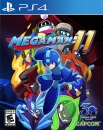Well, there are different levels of understanding here, basically technical and social. As a technician I am more qualified to talk about the technical aspect, but I think that is less relevant for you. I'll do both anyways. 
On a technical level Bitcoin is about a technical method to enable trust between a bunch of actors not trusting each other. This seems to have to do not much with a currency but stay with me a moment. As a starting point you have a number of actors (persons, organizations), that want to exchange information, but don't trust each other not manipulating said information. The classic solution is to create a central authority (or multiple) to decide about the "correct" information.
An example is the DNS. If you type in 'www.google.de' into your browser, that browser needs to determine the server in the internet associated with that name. On a technical level there is a protocol, but that doesn't solve an underlying issue: what if both a server from the company Google and a server from the company Scam-a-dam claim to be responsible for 'www.google.com'? Which one to choose? The solution that was done was to create a central authority (or use an existing one) to be govern this. The authority is IANA, but it does not do that alone but builds a hierarchy. IANA basically says which other authority has control over a top-level domain like the NIC in charge of country-specific domains like .uk or .de, or in this case the one for .com (which is Verisign). These NICs in turn have a system of rules to establish who 'owns' the name. So Verisign decided to give the corporation Google the naming right to google.com, so they can decide which server is in charge of 'www.google.com'. But in theory your browser or your operating system could distrust this whole system and just uses an alternative authority. That would change nothing on a basic technical level, but every URL would lead to something completely different.
Now Satoshi Nakamoto (which is a Pseudonym) decided he wanted to do that without a central authority. He found a solution based on a system of blocks, each block verifying the one before (and therefore forming a chain). Now to decide which current block is correct, he used a verification mechanism based on computing power. Who fastest finds a certain number which is in part defined by the previous block can define which information goes into the current one. A correct block involves some more information, for instance consistent information. If for instance you have a blockchain for internet names, a block would be invalid if it defines a server for 'www.google.com', if already some other server owns that name. I read the white paper on the technical information some years ago, and needed some time to understand it. The main thing is: as long as a single attacker doesn't own the majority of the computing power in the whole network, they cannot change past blocks. This is a method that helps to create trust between a bunch of actors not trusting each other. As a proof of concept Nakamoto implemented his idea as a currency, because what needs trust more than money! Each block holds informations about transfers, so that at each point it is possible to declare who owns the limited overall number of bitcoins. Nobody can invalidate a transaction afterwards and transfer the bitcoins to a different owner.
Now, that was the technical level, but there is a social one. Each currency has a social level. Currencies over time had different ways to be defined, these days most currencies are Fiat money, which means an authority (we are back at this system) declares the money exists and who owns it. Mostly these days money is created if a company takes a credit at certified bank. The bank will create said money in their books (meaning these days computers) and write it into the account of the one tasking the credit, but demands payback with interest. If the credit is payed back, the money will be removed from the books, so the overall amount of money reduces again. Which banks are allowed to create money from thin air is regulated by laws, banks have to follow guidelines and are controlled by a central bank. For the US$ that central bank for instance is the Federal Reserve. Here again you see the system of authorities creating the trust in the system, trust that each transaction is valid, no double booking or other stuff.
Bitcoin as said before creates that trust out of a technical solution. But still the question arises: how is it associated with a value. Now, that works similar to classical currencies in theory ads market creates the price, in practice there are differences. For a US$ the value is derived from what prices are asked for stuff you buy. If people feel the dollar is devalued because of whatever, they will ask higher prices. If they feel it gains value, they will ask for lower prices to gain that coveted currency. Obviously each product you sell or buy may also differ in perceived value. Bitcoin on the other hand is barely used in day to day trade. Therefore it's value is mostly derived from speculation. In that regard Bitcoin works similar to a picture by a well-known artist or a rare stamp. The number of Bitcoins is limited and the number is known, the ownership is trusted. Therefore it works as speculation object. So in theory in both cases the market dictates the value, but as I see it day-to-day trade and speculation are very different markets.
I hpe that helps.





























































